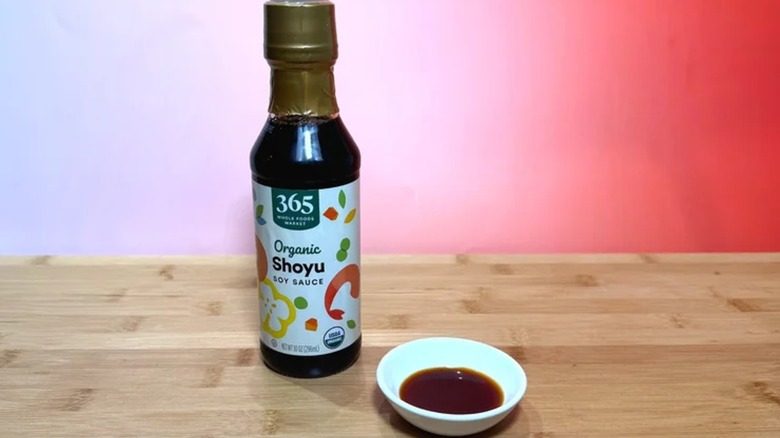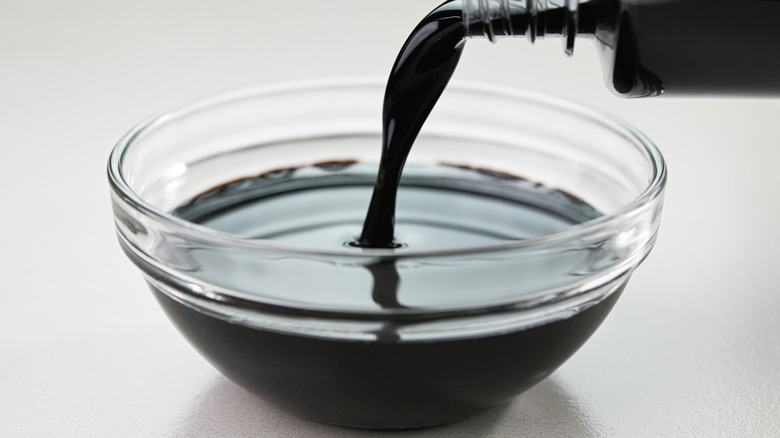Why You Should Leave Whole Foods Soy Sauce On The Shelf
Soy sauce has a ton of delicious uses, especially in Asian cuisine, making it a key ingredient in many different dishes. Originating in China over 2,500 years ago soy sauce is made by fermenting soybeans, yeast, and wheat flour, but modern methods can create it through a quicker chemical process instead. Though all soy sauce is made using the same methods, not all soy sauce is created equal. In fact, some brands are much higher quality than others and one you should avoid picking up at the store is 365 Whole Foods.
Daily Meal tried and ranked 13 brands of soy sauce, and 365 Whole Foods took spot number 12, only beating Signature Select. While Whole Foods' soy sauce had a relatively mild taste at first, whether we tried it alone, as a tofu marinade, or as a rice seasoning it quickly and suddenly became overpoweringly salty. While salt is obviously an important component of soy sauce, it's meant to have a much more complex, umami flavor, and an overly salty sauce makes for a poor condiment or ingredient for whatever you're cooking.
In addition, Whole Foods' soy sauce costs $4.39 for 20 ounces in the Cincinnati area, which comes out to about $0.22 per ounce. In contrast, Great Value's soy sauce, which placed just above Whole Foods' on the ranking, costs $1.58 for a 15-ounce bottle, or around $0.11 per ounce. Funnily enough, our main complaint about the Great Value sauce was also its saltiness, so even if you're looking for a very salty sauce, you'd be better off with the cheaper Great Value bottle.
How to fix overly salty soy sauce
If you've already purchased a bottle of 365 Whole Foods soy sauce (or another overly salty brand), there's no need to panic. There's a simple way to cut back the saltiness of soy sauce by utilizing ingredients you likely already have in your pantry. The easiest way is to simply dilute the sauce with water — all you have to do is add a bit of water, mix it in fully, taste-test, and repeat until you have the desired results. However, this could in turn make the other flavors more diluted too, which isn't great when you want a really flavorful dish.
Another method is to dilute the soy sauce with another flavor; typically, either an acid like lemon juice or a sweetener like a simple syrup, or even just sugar. It depends on what you're making, as some dishes could benefit from the tangy kick of a little citrus juice (such as buttered noodles with soy sauce) while others might actually taste even better with a little extra sugar (such as orange chicken sauce).
Since this will change the flavor of the sauce, apply the acid or sweetener to a small amount rather than mixing it into the bottle. That way, if you use more sugar in one recipe, you're not married to that when adding the soy sauce to something spicier. While, naturally, it's easier to just get a better soy sauce in the first place, this is a great solution if you don't want to throw out a bottle of overly salty sauce.

